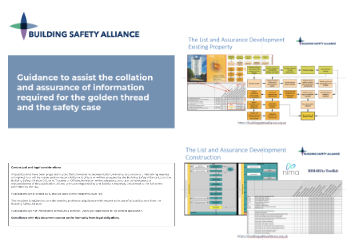Planned preventative maintenance PPM
Maintenance is an essential to ensure that buildings and other built assets present a good appearance and operate at optimum efficiency. Apart from decay and degradation of the building itself, inadequate maintenance can reduce performance, affect health and threaten the safety of occupants and those in the vicinity.
Maintenance can help:
- Prevent the process of decay and degradation.
- Maintain structural stability and safety.
- Prevent unnecessary damage from the weather or from general usage.
- Optimise performance.
- Help inform plans for renovation, refurbishment, retrofitting or new buildings.
- Determine the causes of defects and so help prevent re-occurrence or repetition.
- Ensure continued compliance with statutory requirements.
Very broadly, maintenance can be:
- Condition-based, 'corrective' maintenance. Reactive maintenance undertaken to repair something that has broken
- Planned preventive maintenance (PPM) which is scheduled and can prevent damage from occurring, helping to avoid breakdowns and down-time.
PPM has the advantage of enabling more proactive approach to maintenance, and helps prevent small issues from becoming larger issues at a later date, with the knock-on negative impact on productivity. This also means that costs are distributed more evenly.
Planned preventive maintenance may be scheduled on a PPM calendar which incorporates manufacturer’s suggested maintenance schedules for individual items based on dates, equipment running hours, distance travelled, and so on.
For small sites with fewer items to maintain, a spreadsheet may be sufficient as a PPM calendar. Various software packages are available for larger sites.
A PPM calendar provides a single interface for all maintenance, making it easier to track and manage maintenance. It can also generate reminders or alerts when a maintenance event is due. The calendar should be capable of providing a variety of scheduling options, i.e. after a set number of usage hours, a set number of weeks, etc. This allows the maintenance plan to be customised according to the needs of different items.
A calendar can also be used to manage the inventory of spare parts and supplies, enabling the re-ordering as and when necessary to avoid unnecessary delays.
NB. NRM3: Order of cost estimating and cost planning for building maintenance works defines preventative maintenance as: '...the planned and controlled programme of maintenance and inspection carried out at predetermined intervals (or corresponding to prescribed criteria) and intended to reduce the probability of failure or degradation of the functioning of an item. This includes inspections, adjustments, cleaning, lubrication and/or selective replacement of components (e.g. filters) and minor repairs, as well as performance testing and analysis intended to maximise the reliability, performance and life cycle of building systems, equipment, etc. Preventive maintenance consists of many checkpoint activities on items that, if disabled, may interfere with an essential installation operation, endanger life or property, or involve high costs or long lead times for replacement.'
Business-Focused Maintenance (BG 53/2016), written by Jo Harris and published by BSRIA in May 2016, defines Planned preventative maintenance (PPM) as: ‘…the implementation of a strategy to maximise the operational life of assets and reduce unforeseen instances of failure. PPM should form part of any asset management plan implemented to minimise interruption to core business functions. PPM tasks are based on the use of regular inspections, checks, measurements and fault finding tasks at frequencies that are grounded on experience and based on the expected deterioration of the asset. The purpose of these tasks is to monitor condition, diagnose signs of failure and instigate more intrusive maintenance to prevent complete failure. The outcome of a system of generic maintenance tasks and schedules provides a level of plant reliability which is independent of the service levels required by the business.’
[edit] Related articles on Designing Buildings
- Building owner's manual.
- Business focused maintenance.
- Construction inventory management.
- Facilities management.
- In-house or outsource maintenance.
- Maintenance.
- Maintenance Repair Operations MRO.
- Maximising maintenance budgets after lockdown.
- Predictive maintenance.
- Proactive maintenance.
- Resource management.
- Reliability centred maintenance.
- Unplanned maintenance.
- Scheduled maintenance.
- Soft landings.
Featured articles and news
International Electrician Day, 10 June 2025
Celebrating the role of electrical engineers from André-Marie Amperè, today and for the future.
New guide for clients launched at Houses of Parliament
'There has never been a more important time for clients to step up and ...ask the right questions'
The impact of recycled slate tiles
Innovation across the decades.
EPC changes for existing buildings
Changes and their context as the new RdSAP methodology comes into use from 15 June.
Skills England publishes Sector skills needs assessments
Priority areas relating to the built environment highlighted and described in brief.
BSRIA HVAC Market Watch - May 2025 Edition
Heat Pump Market Outlook: Policy, Performance & Refrigerant Trends for 2025–2028.
Committing to EDI in construction with CIOB
Built Environment professional bodies deepen commitment to EDI with two new signatories: CIAT and CICES.
Government Grenfell progress report at a glance
Line by line recomendation overview, with links to more details.
An engaging and lively review of his professional life.
Sustainable heating for listed buildings
A problem that needs to be approached intelligently.
50th Golden anniversary ECA Edmundson apprentice award
Deadline for entries has been extended to Friday 27 June, so don't miss out!
CIAT at the London Festival of Architecture
Designing for Everyone: Breaking Barriers in Inclusive Architecture.
Mixed reactions to apprenticeship and skills reform 2025
A 'welcome shift' for some and a 'backwards step' for others.
Licensing construction in the UK
As the latest report and proposal to licence builders reaches Parliament.
Building Safety Alliance golden thread guidance
Extensive excel checklist of information with guidance document freely accessible.
Fair Payment Code and other payment initiatives
For fair and late payments, need to work together to add value.
Pre-planning delivery programmes and delay penalties
Proposed for housebuilders in government reform: Speeding Up Build Out.
High street health: converting a building for healthcare uses
The benefits of health centres acting as new anchor sites in the high street.
























